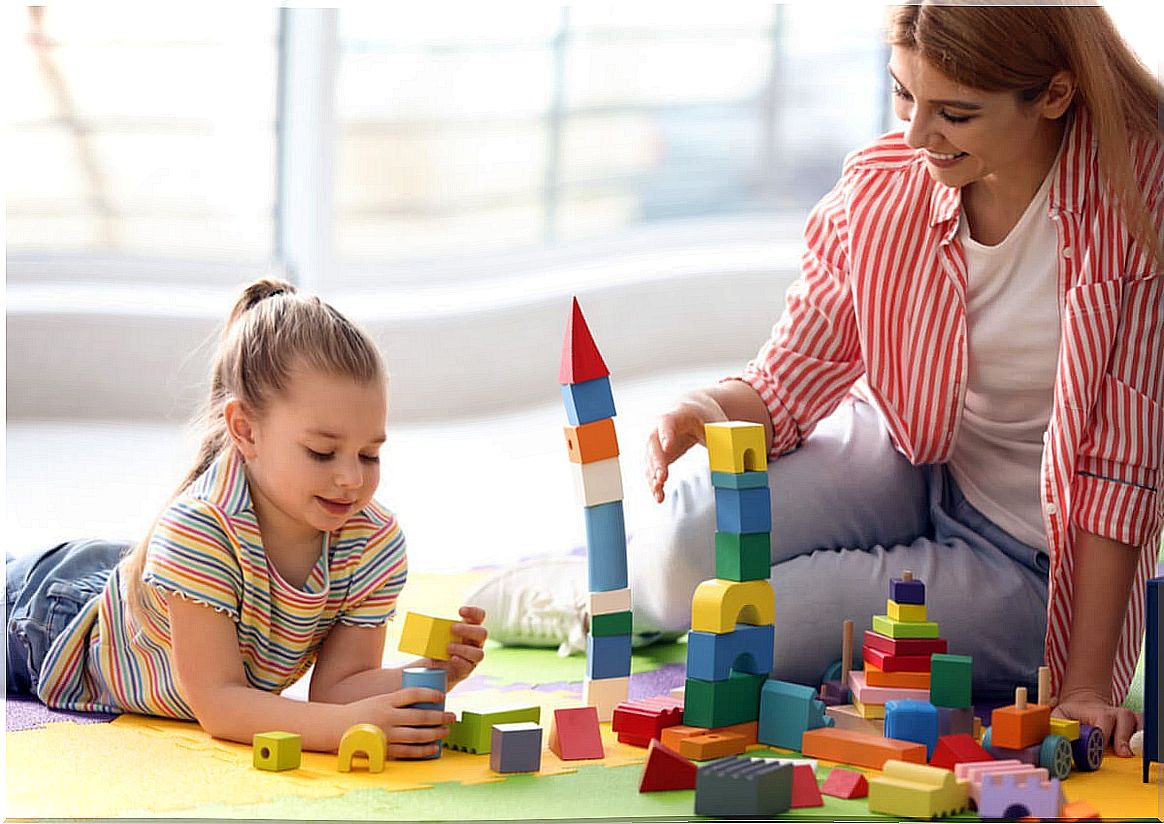Educating With Games: Motivation And Reinforcement Management

Children enjoy playing. They can eat the hours in bites building and changing stories. A basic ingredient in your day to day is fun. Many parents, guardians or specialists use this natural inclination to include in the game a second objective, that of educating and training. This is how the idea of educating with games is raised.
So, the questions appear, how to do it? What to keep in mind? How can I add to that already enriching experience? By playing, children always learn. They are continually raising, accepting, or discarding hypotheses. They are safe environments in which they can take initiative and experiment. Well, we have already given some clues; now, let’s dig deeper.

Fun, then the rest
A game has to be fun. Above all, it has to be. When modifications are considered, the game may become more enriching, but it will cease to be a game when the fun is lost. In fact, it will probably even stop being so sooner, when the primary objective becomes secondary.
In this sense, be careful, because by trying to “improve” a child’s game, with all our good intentions, we can achieve the opposite effect. That is why it is always a good idea to let him make changes or go back if he does not like the ones he has tried. If you prefer your toy plane to go to Paris instead of Rome, what does it matter?
I have seen many parents who, feeling ignored, have ended up saying those of “either you play like that or you don’t play” with activities that in themselves did not entail any danger for the little ones. Of course, in the game parents or guardians must set limits, but before doing so we should ask ourselves about the real motivation that leads us to impose them.
We’re tired? Do we feel hurt because they ignore us, prefer to play alone or do it with other people? We don’t have to confess to anyone. It is enough to identify it and adjust our way of acting. There will be times when our best way to educate with games will simply be not to intervene.
In this sense, one last note. Let’s play with them when we feel like playing, when we are in a favorable state for them to “drive us crazy”. Let’s think that they don’t work with adult schemes; To enter the children’s room to play, you have to be able to be or be in a position to be a bit of a child as well. Otherwise, a funny situation can end up being a source of frustration – an emotional state not conducive to educating with games.
Extrinsic rewards
We adults have more ways of making a child stop playing, against what we want, than trying to make changes or take control. We will dedicate this point to a more subtle danger. The handling of rewards.
Let’s imagine that Luis loves puzzles, games with numbers, drawing (you can put the game you want here). Manolo, his father, and Juana, his mother, are delighted with the boy’s passion. How well our Luis does it!
Manolo and Juana, with all the good intentions in the world, tell their little one that they are going to increase his pay a little for each puzzle he completes. They see that the strategy works, and they continue with their bet.
Thus, summer arrives, and Luis goes to his grandparents’ house and they realize that when packing his suitcase he does not put any puzzle, when last year he would have filled it. Manolo and Juana ask him, surprised. Luis replies that why is he going to do puzzles if that week he is not going to have pay.
Manolo and Juana, when they have finished dinner and are picking up the dishes, they wonder. What have we done? They just realized the reward paradox. By introducing the new motivation, the pay, they have devalued the initial motivation to the point of being so weak that it is no longer able to motivate the behavior. This effect gives a whole manual, but this small example can serve as a reference to understand how we can end up with a natural inclination of the little ones when what we really want is to consolidate it.
On the other hand, I have mentioned economic reinforcement, but with other more subtle types of reinforcement, such as social, this effect also occurs. In addition, if you have understood the entire sequence that I have developed so far, you will be able to understand why in some intervention plans parents may be asked the possibility of overmotivating a behavioral pattern to eliminate, and then withdraw this artificial motivation and that the initial has been devalued to the point that it is no longer able to motivate the behavior.
Watch out! This is the time to say that this paradoxical intervention should not be done without the advice of a professional. If it is done, it must be done well, since small mistakes can achieve the opposite effect to what we intend.

Educating with games is possible
In the previous points, we have seen how poor management of reinforcements, managerial clumsiness or excessive fatigue can end the motivation of a child to play a certain game. Now, the only thing we can do is be careful not to destroy the natural inclinations, in the form of fun, of the little ones when it comes to educating with games? Of course not.
To educate with games we will need, first of all, to know the tastes of the little one. If you love ships, we can adapt the game we want to introduce you to a marine theme. If you get bored easily, let’s discard games that need lengthy explanations. If you enjoy movement, let’s find a way that is not static. The magic word is precisely that, adaptation. We have to go where he is and find out what amuses him and why he is amused.
On the other hand, in our analysis for this adaptation, not only the nature of the child is important, but also the state in which it is found. He can be a very active child, but if he is calm at that moment, let’s make proposals that go in that direction. This will make it easier for you to accept them.
Also, let’s not think that when a child rejects a game he is rejecting us. It may hurt that after having spent a good time “preparing a fort”, the child does not want to play cowboys and Indians or simulate a camp. This is not to say that he does not want to play with us.
Finally, let’s not condemn fun. Children have a lot of time ahead of them to learn in the way that we adults do. Let them do it like children. Playing. messy and orderly. Inevitably, before knowing the order, we must know the chaos or the itch of a wound that heals in the knee. Educating with games is not only possible, but it is wonderful, when we do not forget that we are dealing with children, we also make ourselves a little smaller and go to meet them.









